With a small pet carrier in hand, Dezerae Danis is ready for another goodbye.
After months of growing strong, it’s finally time.
She opens the gate, and the animals she has spent months raising take off. Their fluffy tails breeze past her, a quick, bittersweet goodbye — that’s the goal.
That’s the work of Rocky Mountain Wild Heart Wildlife Rehab — one of a small handful of licensed wildlife rehabilitation centers in Colorado Springs. Danis founded the nonprofit rescue in 2019, specializing in handling newborn and baby squirrels, also known as pinkies.
The organization operates out of Danis’ home, where she spends her days as a caregiver to the orphaned squirrels.
“They’re just so unique. I mean, it’s really amazing once you work with them, how much personality they really have,” she said.

Taking care of the squirrels is a work of passion for Danis. She decided to open her own facility after working at Greenwood Wildlife Rehabilitation Center for a season while in school for zoology at Pikes Peak Community College.
Using funds she had originally saved up for moving into an apartment, at 19, she decided to renovate and create a rehabilitation space in her home shared with her parents.
“I was going to move out, get an apartment, have my life of young person,” she said. “I decided to spend all that money on upgrading the facility.”
To prep the space for baby squirrels, Danis had to install waterproof flooring, buy incubators, bins and feeding syringes, along with a range of wildlife supplies.
“I pretty much spent all that money and gave away that to stay here and start the wildlife facility up,” she said. “I just fell in love with it and how much it was needed.”
Danis’ parents encouraged her to pursue her passion, which led to another helping hand at the rescue.
“My parents were really supportive too, which was amazing. They really started falling in love with wildlife,” she said. “My mom ended up getting licensed for small mammals, too.”
When she opened the facility, Danis also took in exotic pets, being one of the only licensed sugar glider rescues in Colorado.
“I was getting contacted pretty much every week, sometimes several times, about exotics,” she said. “I feel like people think because they’re small that they don’t live very long, but chinchillas can live like 15 to 20 years; sugars can live 18 years.”
But, due to demand, Danis decided to focus on wildlife. Most of the surrendered pets also came with bad medical issues, she said, and while she had to turn many away, she does still care for the exotics that were surrendered at the start.
“We weren’t getting those donations and support and there’s too many people who needed help,” she said. “I had to turn tons of people away. It’s really sad. Unfortunately, we decided to focus more on the wildlife just because the exotics are so expensive with medical care.”
In addition to the cost of medical care, taking care of the pinkies is a full-time job — the youngest ones have to be fed every two hours, day and night.
“I actually didn’t know that pinkies originally could be rehabbed until I started working with my sponsor down here, and she said, ‘Yeah, they can. You just have to be there all the time,” Danis said. “I can’t go on vacation. I can’t go out very much. ... So, I did give up a lot of my younger social life for the babies.”
As they get older, feeding times change. And although so much work goes into raising the squirrels, the ultimate goal is for them to be independent so they can be released back into nature.
Once they’re ready — usually around six weeks — they have a way of letting her know.
“They’re ready for release when they start biting you, because we really try to be hands off,” Danis said. “By the time I have to release them, I have to use really thick gloves, and they’ll try to bite me. They don’t like me anymore.”

Danis will release them within 10 miles of where they were found, as per state guidelines. She’ll usually look for a good spot with a water source and cover.
“It’s always definitely bittersweet, but they love being released,” she said. “That’s probably the best part about rehab, because most of the time they run out, and they’re super excited and super happy.”
With under two dozen small mammal rescues across the state, the center does have a transport team to be able to care for the pinkies while they’re taken to Colorado Springs. Danis has received squirrels from as far as Longmont and Fort Collins.
“A lot of people from up north, they can’t get all the way down here,” she said. “Because we’re the only ones to take those babies, we have to find a way to get them down here. So we have a lot of wonderful transporters.”
And the list of rehabbers isn’t growing, Danis said.
In Colorado, wildlife rehabilitation licensing works on a sponsorship basis, meaning those who are interested in becoming licensed must work with a fully licensed rehabber for one to two years, according to Colorado Parks and Wildlife. After the sponsorship, individuals must pass a state test.

This, Danis said, makes it difficult for new individuals to get licensed, with many rehabbers too busy to sponsor someone.
“The problem is, because the list is so small, those individuals are so overwhelmed with wildlife, they don’t have time to sponsor,” she said.
Instead, Danis said, having alternative options to obtain licensing would encourage more people to get into wildlife rehabilitation, like course or volunteer options, which is done in other states.
So, what do you do if you stumble upon a baby squirrel outside? Well first, you’re most likely to see them near the end of winter, start of spring — as early as February.
Usually, people come upon the baby squirrels if they’ve been knocked out of their nests from the strong winds in Colorado. Sometime, they’re orphaned.
If you find a baby squirrel, first attempt to reconnect it with its mother by placing it in a box with some insulation, Danis said. Sometimes, in cases where the squirrel has just recently been separated from its nest, its mother will come and bring it back.
But if the mother hasn’t come for it in four to six hours, then its time to get the rehabbers involved by giving a call.
“We’re never upset by getting a call,” Danis said. “We’ll either have the answer, or we’ll help you get the correct answer.”
Eventually, Danis would like to get her license to rehabilitate medium mammals, like raccoons and foxes. She has plans to sell the current property for one with more space.
But for now, she’s working on getting the pinkies strong for her next goodbye.
To contact Danis, call 719-322-1532,


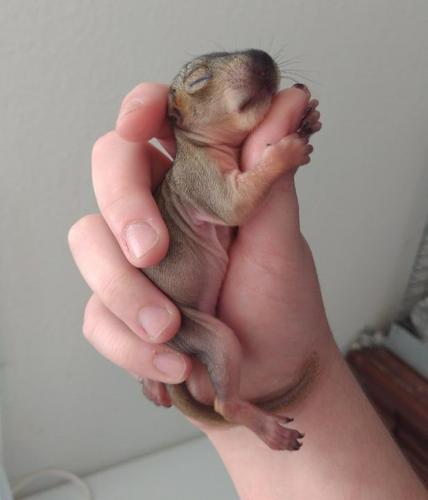
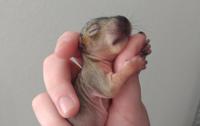
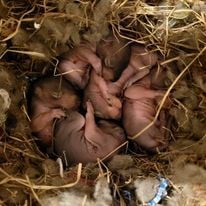
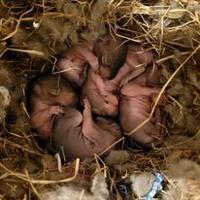

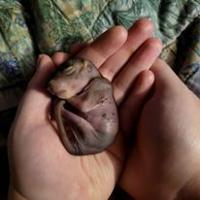

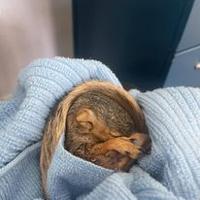
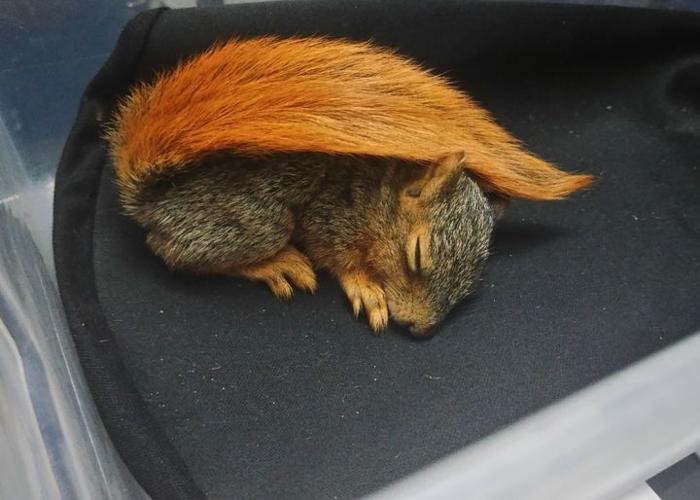
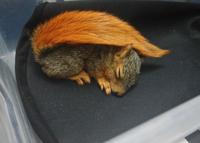

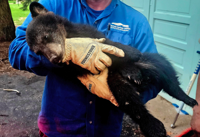

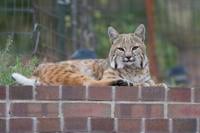




 Your Privacy Choices
Your Privacy Choices